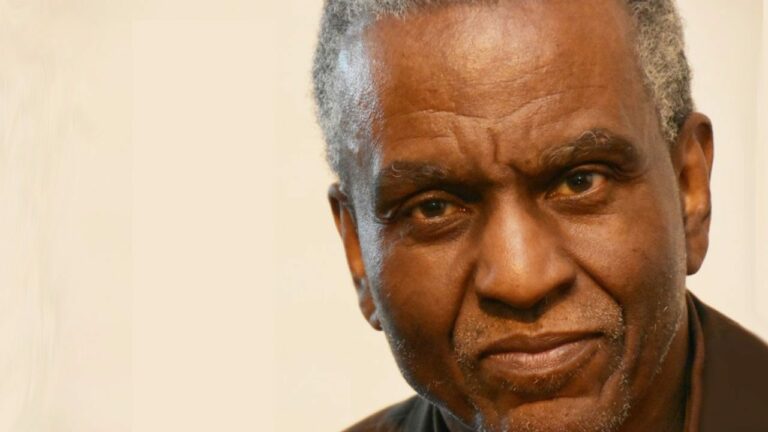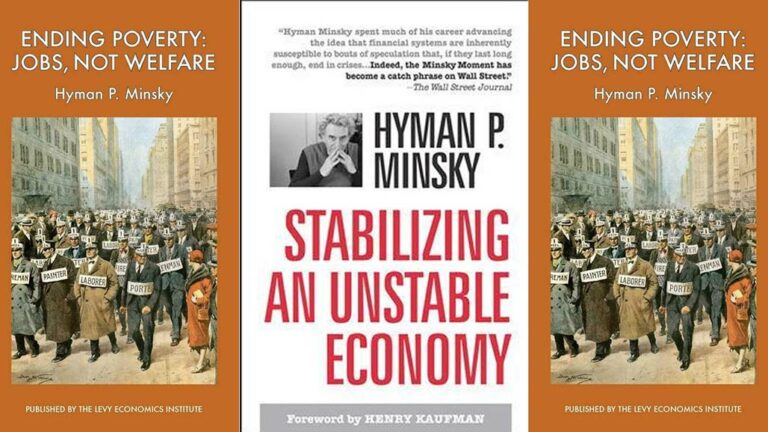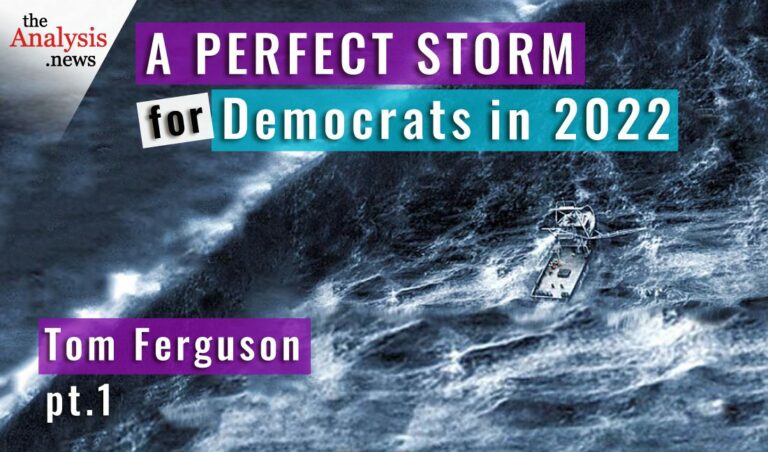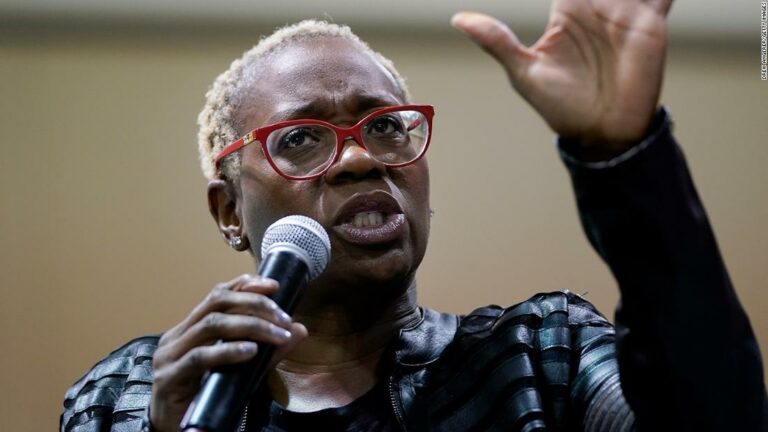If Biden Picks Rice as VP, It Strengthens His Worst Instincts
Phyllis Bennis and Stephen Zunes join Paul Jay to analyze the record of Susan Rice, and what it means to progressive voters if she is Biden’s VP pick – on theAnalysis.news podcast.
Transcript
Paul Jay
Hi, my name is Paul Jay, and welcome to theAnalysis.news podcast.
Susan Rice, who’s considered a front runner as Joe Biden’s vice president, is a multi-millionaire investor in the fossil fuel industry, Las Vegas casinos, and much more. And according to many progressive commentators, as a national security adviser to President Obama and before that, an undersecretary of state, someone who seems to have never considered a war, she didn’t want to wage. She’s considered firmly aligned with the hawks of the Democratic Party, although it’s been reported that she was at odds with Prime Minister Netanyahu of Israel and took Obama’s side during their disputes.
Now joining us to assess what Susan Rice might mean as Biden’s VP and perhaps someday president is Phyllis Bennis. She’s director of the New Internationalism Project at the Institute for Policy Studies. Also joining us is Stephen Zunes. He’s a professor of politics and coordinator of Middle Eastern Studies at the University of San Francisco. Thank you both for joining us.
Phyllis Bennis
Good to be with you.
Stephen Zunes
Thank you.
Paul Jay
So, Phyllis, kick us off. What’s the big picture take on Rice and what would it also tell us about Biden if that’s his choice?
Phyllis Bennis
You know, Paul, there’s a theory running around, which I think is actually pretty accurate, that the reason that the very high visibility teams that were put together between Biden and the Bernie Sanders campaign to come up with unity positions between essentially the left and the center of the Democratic Party, that they had one on immigration, one on health care, one on the environment. And they were pretty impressive in terms of bringing in activists, bringing in progressives, as well as bringing in people from the Biden campaign.
They didn’t have one on foreign policy, and it was disturbing from a number of vantage points. But one of them was the sense that Biden believes that foreign policy, absent all evidence to the contrary, is actually his strong suit in the election. And because he’s very experienced in foreign policy, which he is, he knows a lot of foreign leaders around the world, that somehow he doesn’t have to worry about his credentials, his bona fide credentials, as a foreign policy leader. And the problem is, of course, that he is, in fact, an experienced foreign policy operative, and has always been on the side of the war, ranging from the Iraq war to a wide range of other positions. He’s never been on the anti-war wing of the party. Susan Rice, even more than Biden in some ways, has emerged from the beginning of her sort of high visibility positions in the Democratic Party as very much a leader of the, “We should definitely go to war side of things”.
So with all the conversations that are out there about she’s a potential liability to Biden because of Benghazi, Benghazi becomes this sort of watchword of being linked to Hillary Clinton being linked to the crisis around Benghazi. While nobody talks about the fact that the real criminal aspect, in my view of her activities in the US and NATO war against Libya, was not the crisis in Benghazi that ended up with the unfortunate death of four US soldiers and contractors. But was the decision to go to war in the first place. It was a little triad of Hillary Clinton, Susan Rice, and Samantha Power, who persuaded Obama when he was president to go to war in Libya rather reluctantly. And as we know, reluctance doesn’t really matter when people are under the bombs. It doesn’t matter whether you were excited to drop the bombs or reluctant to drop the bombs. When you choose to drop them, you become accountable for that.
So I think that she is a warmonger who, as you said, has never seen a war that she didn’t want to support. And it’s just ironic that what she’s being called out for at the political level is this one side issue, instead of the devastating attack on Libya that devastated the population, killed huge numbers of civilians and left Libya in the state that it is in today where there are competing governments, competing militias, a militarized society where no one is safe, huge problems for migrants. It’s just been a nightmare. And the weapons that were turned loose in the context of the NATO/US war in Libya have now spread throughout the Middle East, throughout North and Central Africa, and are destabilizing whole countries in the region. So the result of the war that Susan Rice pushed for has been devastating. And so the notion that she is going to be pulled in as the vice president to another war supporting president is a very depressing reality,
Paul Jay
Stephen, tell us something about her history.
Stephen Zunes
Well, she served as Assistant Secretary of State for Africa in the Clinton administration, she served as U.S. ambassador to the United Nations during Obama’s first term and then as his national security adviser during his second term. In between, she was at the Brookings Institution in Washington, D.C., a major centrist think tank. And I want to underscore her big legacy is her hawkishness.
Just, for example, in the run-up to the Iraq war, people like Phyllis and I were trying to get the word out that these claims that Iraq was a threat and had accumulated massive amounts of the so-called “weapons of mass destruction”. She sided with the Bush administration, insisting there was indeed an Iraqi threat, saying that in her words, it’s clear that Iraq poses a major threat, has weapons of mass destruction, needs to be dealt with forcibly and that’s the path we’re on. And when Colin Powell gave his widely ridiculed presentation at the United Nations, she rushed to his defense, saying “that he proved that Iraq has these weapons and is hiding them. I don’t think many informed people doubted that “that’s downright Orwellian, people who blindly accepted Powell is transparently false claims are well informed, while the UN officials, arms control specialists and others knowledgeable reality of the situation where presumably otherwise. But you try to play it both ways. There was this article that’s been widely circulated from the Chicago Tribune that says, no, Susan Rice did not support the Iraq war.
And indeed, it appears that I don’t see a statement saying, “I think we should invade Iraq,”. But, when you reinforce the main arguments for war and you undermine many of the arguments against it, I’d say it’s pretty clear where you’re coming from.
Africa is supposed to be her specialization, but there it’s also very disturbing. When she was U.N. ambassador, she suppressed a U.N. report criticizing the government of Rwanda, a US ally, for supporting the M23 rebels in Eastern Congo. They were led by this notorious warlord, wanted by the International Criminal Court. He wreaked havoc in that part of the country. And she dismissed it, saying, oh, it’s eastern Congo, if it weren’t for the M23, it would be some other armed group. And when the Ethiopian dictator Meles Zenawi died, she delivered a eulogy calling him brilliant, a true friend of mine, uncommonly wise. And this is at a time I think more Americans than ever, especially Democrats, don’t like this idea of backing allied dictatorships around the world. And she’s very much into this Cold War mentality that no matter what a government’s human rights abuses or violations of international legal norms if they’re an ally, we should give them our full support.
Paul Jay
Biden has since said he was wrong, voting in favor of the invasion of Iraq or the Iraq war. Has she ever expressed any misgivings about the position she took?
Stephen Zunes
Not to my knowledge. How about you Phyllis, have you come across anything?
Phyllis Bennis
No, I’ve never seen anything like that.
I think most of the people who later came to regret their position because it became so untenable as something they could defend, didn’t actually apologize but took the position, I don’t know that this was her position, but for many people who were in and around the Democratic Party in later years after the Iraq war had begun and was going forward and had become such a disaster to everyone, you know, many of us knew it was going to be a disaster ahead of time, but for everybody to be able to see it as a disaster, the position became, if I knew then what I know now, I wouldn’t have voted for it. It’s this sense of I didn’t have any way to know that what they were saying wasn’t true. And of course, that just begs the issue of all the people in the United States, peace activists, certainly, but not only plenty of academics, political figures, others saw through the lies and were willing to come out and say this war would be a disaster and that would be based on lies and certainly around the world, that was the widespread understanding. So this notion that people should apologize didn’t really take off. But it became a kind of meme, if you will, to say, if I knew then what I know now, I’m sorry, I didn’t know more. And it’s like, well, you knew enough if those of us didn’t have clearance to see the kind of detailed information that people in Washington were seeing and we figured it out, she should have been able to figure it out.
Stephen Zunes
Exactly. I think it’s fair to say that close to 90% of American Mideast scholars oppose the idea of invading Iraq. And I’d say probably pretty close to 80% of foreign service officers and professionals within the State Department familiar with specializing in the Middle East.
And so, you know, people like us, you know, look at folks like Biden and Rice, the way epidemiologists and climate scientists look at Trump and the Republicans mean there’s almost an anti-intellectualism there that they were driven by, you know, by ideology more than the reality.
Paul Jay
Yeah, I’ve always thought they were certainly the Bush-Cheney administration was driven simply by the ambition of needing an excuse for the overthrow of Saddam. And I actually think it’s once they realized there were no weapons, and especially chemical weapons, that it was OK to invade, it was almost like they needed the U.N. to go in and make sure that the American forces wouldn’t be met with chemical weapons and so on. There was also a conference in Ottawa about seven or eight months before the invasion of leading national security experts from around the world, including leading military figures and others. And they had a resolution at the end of it which actually said that it doesn’t matter whether Saddam has any weapons of mass destruction because it’s clear they could only be used in a defensive capacity, there’s no offensive possibility of it. So even that wasn’t even an issue that there may have been some doubt whether there were weapons or not. But I think the point we’re getting at with Rice here is that she buys into this vision of America as the global policeman, the intervenor, and she seems to have very little compunction about using military force.
What does that mean in terms of Middle East politics? It’s not a direct issue of intervention there if she ascends either as the VP and if she doesn’t get VP, I would think it’s highly possible she’ll wind up as Secretary of State. What would it mean for Middle East politics?
Phyllis Bennis
Well, I think we’re talking about the Middle East as a region or you’re referring specifically to Israel Palestine.
Paul Jay
Well, I had in mind Israel Palestine, but how about both.
Phyllis Bennis
In Israel Palestine, I think the issue is not that she would see the use of force as a factor. She’s not an absolutist in that sense. It’s that there’s no challenge to the existing pro-Israel assumption that has guided US foreign policy for so long. One of the things that are sort of interesting about Biden, Biden has not been one of those in power, whether in the Congress, in the Senate, in the White House or anywhere else among political figures, who have had to explain themselves to respond to pressure that recognizes the degree to which discourse on this issue has so massively changed over the last decade or more.
You know, the opinion of young Democrats, are profoundly different than the Washington consensus, if you will, on uncritical support for Israel, uncritical US support for the Israeli military, uncritical and absolute protection of Israel in the United Nations, all those things that have been a given for so long, they’re not yet changing. But the discourse around them is changing dramatically, both at the public level and the media level. And it’s in that context where you see a certain kind of defensiveness among people close to Biden that are recognizing this.
Black Democrats don’t have the same embrace of Israel that they once did, young Democrats certainly don’t, and Jewish Democrats, crucially, have pulled very far away from the kind of assumption of pro-Israeli politics that characterized the Jewish community for so long. So the rise of explicitly anti-Zionist organizations and anti-occupation organizations and others, ranging from J Street to, IfNotNow, to Jewish Voice for Peace, which of course has 20,000 paid members and several hundred thousand online supporters among Jews who defined their political work in the context of Palestinian rights.
You do see that in some people that are around Biden, although he hasn’t yet shown that change. But people like Susan Rice, who have never had to run for office, she’s never run a campaign, she’s never run to represent people. So she never had to answer for her politics publicly. So I think that becomes a very dangerous reality. I don’t think she has ever had to work outside of the Washington bubble, where people tend to still agree that Netanyahu is the leader of a democratic country and that the Jewish community in the US are all supportive of Israel and that criticizing Israel is political suicide. There’s this set of, quote, “facts” that have not been true for a very long time.
Paul Jay
But she has apparently come out against Netanyahu’s recent annexation proposal.
Phyllis Bennis
Everybody has come out against annexation.
Paul Jay
Even Chuck Schumer.
Phyllis Bennis
Annexation is not any longer on the agenda right now because of the pandemic. That has nothing to do with US policy. It has everything to do with the fact that the rationale for annexation, which doesn’t really do Israel any good. Israel was doing fine with existing and unofficial annexation. What they wanted to do was turn it into legal annexation. The problem is that was based on Netanyahu’s need to pacify his farther right supporters. He’s not worried about the supporters to his left, he’s worried about the supporters to his right. And they were demanding annexation. And he was prepared to do whatever he had to do to keep them happy because keeping them happy is necessary to keep him out of jail. What happened with the pandemic is they suddenly stopped worrying very much about annexation and started worrying about the pandemic. And as a result, he was able to pull back from annexation, take it off the agenda for now. It’s not dead in the water, but it’s not on any closeup agenda right now. So that’s not what is something that anybody in Washington has to respond to. It’s easy for them to say, oh, no, I don’t think it’s a good idea because it’s not on the table in Tel Aviv-Yafo.
Paul Jay
Stephen, what is Susan Rice’s record on Israel Palestine?
Stephen Zunes
She’s one of the biggest hawks within the establishment, even I know when she was in the Obama administration. Robert Wexler, a former congressman who then later headed the right-leaning pro-Israel advocacy group, wrote in an op-ed in Politico that, quote, “Israel has no greater champion in the current administration than Susan Rice. She vetoed a very modest UN Security Council resolution, just reiterating the illegality of the Israeli colonization in the occupied territories and also reiterating the fourth Geneva Convention, the landmark of World Court decision. She just dismissed it as anti-Israel crap. She was one of only nine negative votes, 193 member U.N. General Assembly, to upgrade Palestine’s status to a non-member state. I mean, her view as well, Israeli statehood and membership in the UN as a given Palestinian statehood and U.N. recognition should only be on terms agreed to by Israel’s right-wing government. She showed utter contempt for international law as a basis for a settlement, saying things like Israel’s unilateral annexation of greater East Jerusalem, the settlements and more should be up to the two parties to decide, you know, ignoring the gross asymmetry in power, saying the UN should not attempt to resolve the core issues that divide Israelis and Palestinians”. Like saying the UN shouldn’t have a role in an international conflict that raises issues in the UN charter, I mean, seriously. And she has defended Israel’s attacks on population centers which have killed thousands of civilians over the years that have been war crimes, well documented by Amnesty International, Human Rights Watch, the United Nations. And she’s just said, oh, Israel has the right to defend itself. And she’s denounced U.N. investigations and reputable international jurists. She’s really hard to line. That’s particularly disturbing because Biden also has a reputation of being one of the more hard line people within the Obama administration on Israel Palestine. His record in the Senate was very extreme, both of them are much closer to groups like AIPAC than, say, J Street, and the more moderate pro-Israel groups. I actually have an article that came out this morning in Truthout, which looks at the Democratic platform and how they address Israel Palestine, where they readily announce efforts of boycott, divestment, and sanctions and criticize the United Nations for its role and says nothing of the occupation.
As Phillis points out there, so out of touch with the rank and file Democrats. I mean, in this article I point out the polls show just how far off they are. So basically what Biden needs to do, he needs to have a running mate that will reassure the progressive majority in the party, of that he is, reaching out to them, that if you name somebody like Rice, it’s a big middle finger to the rank and file whose support he needs.
I mean for Biden to win, there’s got to be a high turnout among millennials and those of the other more left to libertarian kind of views that are concerned about Biden’s hawkish record on Israel, Palestine, Iraq and elsewhere. And to get somebody who’s in his mold like that is going to be really alienating.
Paul Jay
OK, I’m going to jump in here with a little bit of Biden defense, because at least on the issue of Iran, Biden supported the nuclear agreement and according to Larry Wilkerson, who pushed on the Hill, was lobbying on the Hill in favor of the agreement. Biden actually fought very hard for that, for the agreement with Iran. And I remember in 2008 during the campaign, there was an interesting quote from Biden where he says, if you have to accept Iran as a regional power, you can’t act as if it’s not. And then he said, I thought something really interesting, which was if you didn’t want that, you shouldn’t have invaded Iraq, which seemed a rational position on Iran. And again, while I’m sure no fan of Susan Rice, from what I understand, she supported the agreement with Iran as well. So, Phyllis, is that some kind of redeeming something about them?
Phyllis Bennis
Well, I think that in terms of Biden, it is one of the most important things about what a Biden administration could be pressured to do. And I think that is very, very important. It was Obama’s single biggest diplomatic victory was the Iran nuclear deal. And it was a hard won victory because Congress had a lot of opposition. A lot of pro-Israel forces, including many progressive pro-Israel forces in Congress, were very reluctant to come on board supporting the Iran nuclear deal because the Israeli position was dead set against it. They claimed they believed it to be an existential threat to Israel, which, of course, it never was. I mean, even if Iran at some point did get a nuclear weapon, which it never has, and US intelligence agencies all agree it never even decided it wanted one. But even if it did, all it would mean would be a threat to Israel’s nuclear monopoly in the region. It would not be an existential threat to the people of the country of Israel.
But I think what is true is that there was a recognition of the importance of that agreement and the Obama administration to a person fought very hard for it. That meant that Biden was fighting for it. I think he fought harder than Susan Rice did, I would say, but she represented it, she was in that administration, that was their position. So I think the question of returning to the nuclear deal and perhaps broadening the kind of diplomacy that was underway with Iran is something that Biden might be open to.
It does not match Susan Rice’s own perspectives on all this stuff. She followed the lead of the president, who she worked for. You know she was in a position where she serves at the pleasure of the president. So if she didn’t support his initiative on something that important, whatever she said in private, and I have no idea if she opposed it in private before it became the official position of the Obama administration. But whether she did or not, she was a representative of that administration. So I agree with you, Paul. That is a very important component that we should keep in mind.
It also goes to the enormous differences between Biden and the Trump administration on issues around climate, issues around immigration, and all of those ways. It is probably in the question of international politics, of foreign policy, where there is the biggest gap between a potential Biden administration and the progressive wing of the party, which is increasingly not just increasing in size and influence, but increasingly strong in claiming the legitimacy of its positions.
It’s in that context that bringing in someone like Susan Rice, who pulls him further to the right, rather than someone who could act as a balance towards his own right-wing tendencies, becomes so dangerous. And if you put aside any substantive concerns and just look at what it means for the campaign, what it means for votes, something Stephen said earlier, I think is absolutely right, that if you’re trying to get progressive voters, you’re trying to get millennial voters, Susan Rice is not someone who they’re going to see as representing their interests, their perspectives, and that’s a serious threat to Biden even being elected.
Paul Jay
There’s probably no foreign policy position, no relationship more important than between the United States and China. Biden has recently upped his aggressive rhetoric towards China. One hopes it’s a tactical thing just to kind of outflank Trump on China, but it’s a horrible outflanking thing to do, to add to the Cold War mentality.
What is Susan Rice’s history on record on China?
Phyllis Bennis
She’s very much in Africa and Middle East expert. She hasn’t emerged as an expert on China. I think what we’re seeing that’s quite disturbing is a tendency within the Democratic Party and unfortunately, it includes some on the progressive side as well as the Democratic Party mainstream and even the right wing Democrats, are trying to outrun Trump to the right on the question of China and the threat of a new Cold War that could get very hot almost by something that would be called an accident, because neither side would necessarily want to launch a shooting war, but because tensions are so high, communication is so lacking that the danger of what could happen, for example, in the South China Sea, it’s very similar to the situation between the United States and Iran in the Persian Gulf, where you have the naval armadas of both sides very close to each other, very crowded waters, you can imagine in the South China Sea, like in the area around the Strait of Hormuz, for instance, you could imagine a scenario late at night, a young sailor on board a ship sees some kind of a light, some kind of a flash and immediately thinks that she or he is under attack, fires back sort of instinctively the US and Russia in Syria, for instance, have a military to military communication system where something like that can be called out and brought down. The temperature can be reduced very quickly indirect calls. As far as we know, that doesn’t exist between the US and China in the South China Sea or between the US and Iran. It means going through intermediaries, that means time wasted, and by that time, there could be a shooting, war could break out. It’s not impossible. It’s not inevitable by any means. And I don’t believe that either side actually sees that as a political advantage. But I do think it’s a very dangerous reality that the assumptions throughout a bipartisan consensus in Washington are that China needs to be viewed as a Cold War competitor and enemy kind of context, rather than as a, it’s another competing economic power in the world. We’re no longer the sole economic power and we have to learn new ways of dealing with this rising power
Paul Jay
This point that you made that even some progressives in the Democratic Party are talking that way. Even worse, some progressives in the Democratic Party joined in all the anti-Russia hysteria and where, again, I think to a large extent, just for really partisan political reasons, it was just a way to go at Trump. But invoking all the demons of the Cold War to do it.
Do you know anything about Susan Rice and her attitude towards Russia, Stephen?
Stephen Zunes
She was generally a supporter of the eastern expansion of NATO, which was part of what has provoked the rather reactionary nationalism that we’ve seen emerge under Putin’s leadership. They share this kind of triumphalist kind of view that, “oh, we won the Cold War, you lost. And so we’ll treat you like a second rate power,”. I, as much as anybody, are horrified at some of the actions by both the Russian and Chinese governments. But, given some of the right-wing regimes that we support around the world, it’s not the human rights concerns that are motivating, nor is it concerns about international law. Given our support for the Israeli occupation and the Moroccan occupation of Western Sahara, do we really care about Crimea in light of that?
I mean, not to minimize the legitimate concerns about these autocratic regimes, but this feeds in this kind of self-righteousness that these are threats and we are the moral and legal defender of the world order. And we have to take these kinds of confrontational positions to challenge them, and Susan Rice is very much a part of that paradigm, unfortunately.
And just to add to what Phyllis is saying, what I was saying earlier about how she really doesn’t add that much to the ticket I mean, you want a black woman as your running mate, well, get someone who comes out of the black community, you know, somebody like Karen Bass or whomever. I mean, Susan Rice doesn’t have particularly close ties to the black community. She’s a resident of Maine, the whitest state in the country. I mean, this is not really someone who could add much in terms of getting the enthusiasm to try to build a winning ticket in November.
Paul Jay
Yeah, I think people all over the country that supported Sanders and are trying to talk themselves into the necessity of voting for Biden to defeat Trump. It’s going to take the wind out of a lot of sails if Susan Rice gets the nod, how much impact do you think it will have Phyllis?
Phyllis Bennis
I’m not an analyst of voting potentials and I work for a nonprofit, so we don’t take positions on candidates directly except in terms of analysis of what they what they’re pushing for. But I think that to the degree that the progressive wing of the Democratic Party has emerged with such energy and such excitement, particularly exciting young voters, particularly where we see the crossover, the climate movement, for example, that’s disproportionately young new voters that are so excited about the developments in the rise of the Green New Deal. All of that, the foreign policy aspects are tied to that. And I think that to the degree that Biden is trying to win over support from the reluctant voters who were excited about Bernie Sanders, maybe were excited about Elizabeth Warren, but are not so excited about Joe Biden, bringing in someone like Susan Rice, who is so close to the Biden positions that are disliked by that wing of the party, is certainly not going to help him bring in that wing of the party that’s all already that resistant.
Paul Jay
Yeah, I think if she gets the nod, it’s his first major concession, both to the financial sector and the military industrial complex sector, because it’s the financial sector that owns the military industrial complex sector primarily. If you looked at who owns Raytheon and Lockheed Martin and Boeing, it’s all the majority shareholders are all big financial institutions led by BlackRock and Vanguard and those kinds of people. And so I think a nod to her is going to be a pretty bad indication of where he’s going to go on these kinds of issues. At any rate, thank you both for joining me on theAnalysis.news podcast.
Phyllis Bennis
Thank you.
Stephen Zunes
It’s great. Thank you. It’s been a pleasure.
Paul Jay
And thank you for listening, and please join us again.
Podcast: Play in new window | Download







Ms Rice is a war criminal and wife of a wealthy Canadian oil pig , far more corrupt than Mr trump but on a par with Mr Biden , enough said !
Kamala Harris was in fact selected as Bidens VP choice . The differences between her and Susan Rice are miniscule , making is gabble while inane still somewhat topical?
Since the Analysis interview, Pamela Harris was chosen by Joe Biden to be his V.P. running mate. Better than Susan Rice but not by much! As the eldest President, if elected, Biden might very well not finish his term or terms of office. We may have a President Harris instead. What a victory for women and for racial equality that would be!
Our Empire, now led by elders, has itself aged rapidly. Counting from1898 to 2000, only 102 years so far. The Romans had over 400 years not counting the eastern “Romans” and had left a greater legacy – not all destruction and ruin – and it did not have secure borders as does ours. Indeed, our Empire may not leave any legacy at all! The collapse of civilization, by nuclear war or by global overheating, may be much longer lasting than the period from 469 to 1500.
Kamela, Pamela, Shamela! What’s in a name! An onion by any other name would smell as bad!